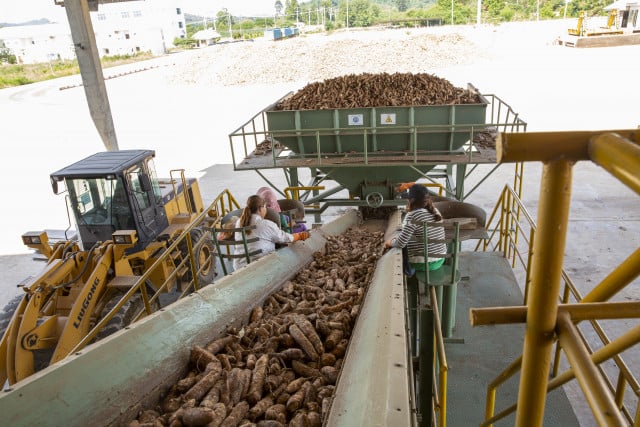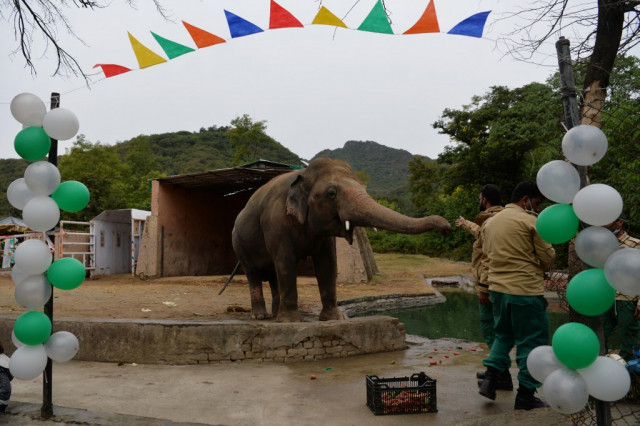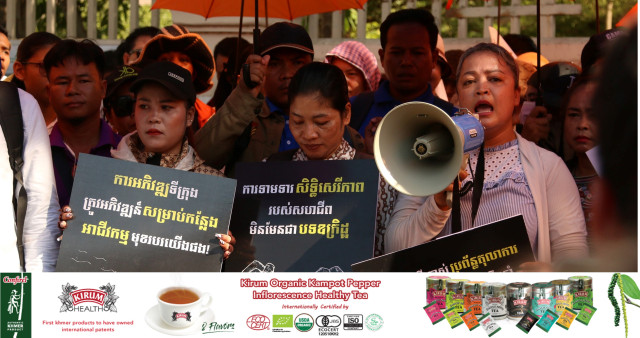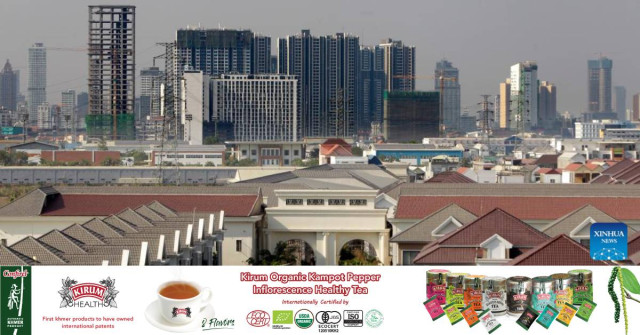Thaung Ret: A Testament to Women’s Critical Role in Biodiversity Conservation
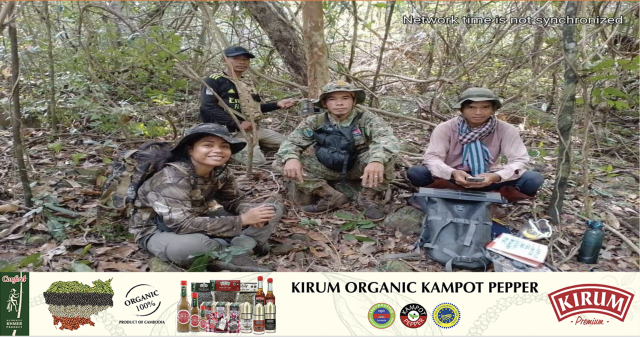
- By Hong Sreyna
- December 24, 2023 8:06 PM
PHNOM PENH — People working in forestry and wildlife research are generally men as the work can be challenging and risky. However, Thaung Ret has overcome these challenges over the past seven years, promoting wildlife conservation in Cambodia.
Her commitment and contribution to biodiversity conservation has been such that, in December 2023, Ret received the "Future Awards in the Environmental, Social, and Governance Category" of the Women of the Future Awards Southeast Asia.
Born in Kampong Thom province, the 34-year-old woman is a biodiversity and science manager at Conservation International Cambodia. She is involved in studies on the wildlife population and distribution as well as supports the forest rangers by providing them essential wildlife-study methodologies and technology as their work includes handling surveillance camera installation deep into the jungle.
"My research covers the study of birds, mammal species density, and forestry products,” Ret said. “I am also working on a Redd plus project along the Cardamom Mountains." REDD+ stands for Reducing Emissions from Deforestation and forest Degradation.
A profound affection for forests and wildlife
Ret has been involved in forest conservation work for more than seven years. When asked about the most significant challenges she has encountered, she mentioned spending extended periods of time in the jungle and, being the only woman handling this work in those areas, at times her dealings with male colleagues.
During each mission, Ret must spend two to three weeks in the forest to get the job done, which means that she and her team have to get fully prepared before leaving. "Our preparation will be deciding what we should or should not bring,” she said. “We try our best to ensure that our load to carry is as light as possible.
“Each time, we need to have the local community and forest rangers’ cooperation and support, especially to guide us along the way in the deep jungle,” Ret said. To ensure safety, her colleagues in Phnom Penh also work closely to support her team from afar using tracking devices, she said.
Although the preparation has been done, Ret said, she and her team still have to deal with unexpected challenges in the course of their work, one of which being the weather.
According to her, the rainy season tends to be more challenging when working and sleeping in the forest and mountainous areas. Among other things, if it rains at night, everyone may end up not sleeping at all.
"In mountainous areas, the rainfalls are intense,” Ret said. “If we go somewhere, it is possible to go but, when we try to come back, [at times] we cannot because the rivers can immediately be flooded due to the heavy rainfalls, disrupting our journey. The rainy season is more complicated.
"During the dry season, we face difficulties finding fresh water,” she said. “Sometimes, we have to drink water from ponds or other sources that are not clean. If we work where villagers know us, we know where to find water [as they will tell us]. But if we are new to the place, we might not have water to drink.”
And yet, these hardships and potential risks do not discourage or deter Ret from loving and doing her job. "The affection I have for wildlife and natural resources has been the greatest boost for me to keep going and overcoming all problems," she said.
Besides her boldness and passion for wildlife conservation, Ret explains that the beauty and amazing Cambodian natural resources always help deal her with exhaustion and anxieties on a mission.
"As I love data, forests, and animals, I have been blissfully working with the local community and contributing to conservation work,” she said. “I have been seeing striking sceneries and wildlife, and hearing animals' sounds when I went deep into the jungle. I am the luckiest person because not many can reach such places and witness the incredible natural settings.
"It is just like I go into the jungle to do my job while being on an excursion,” Ret said. “That means I get a chance to see the magnificence of our nature and get a salary. Simply put, it is like my manager pays me to embark on a trip in the forest," she added with a little chuckle.
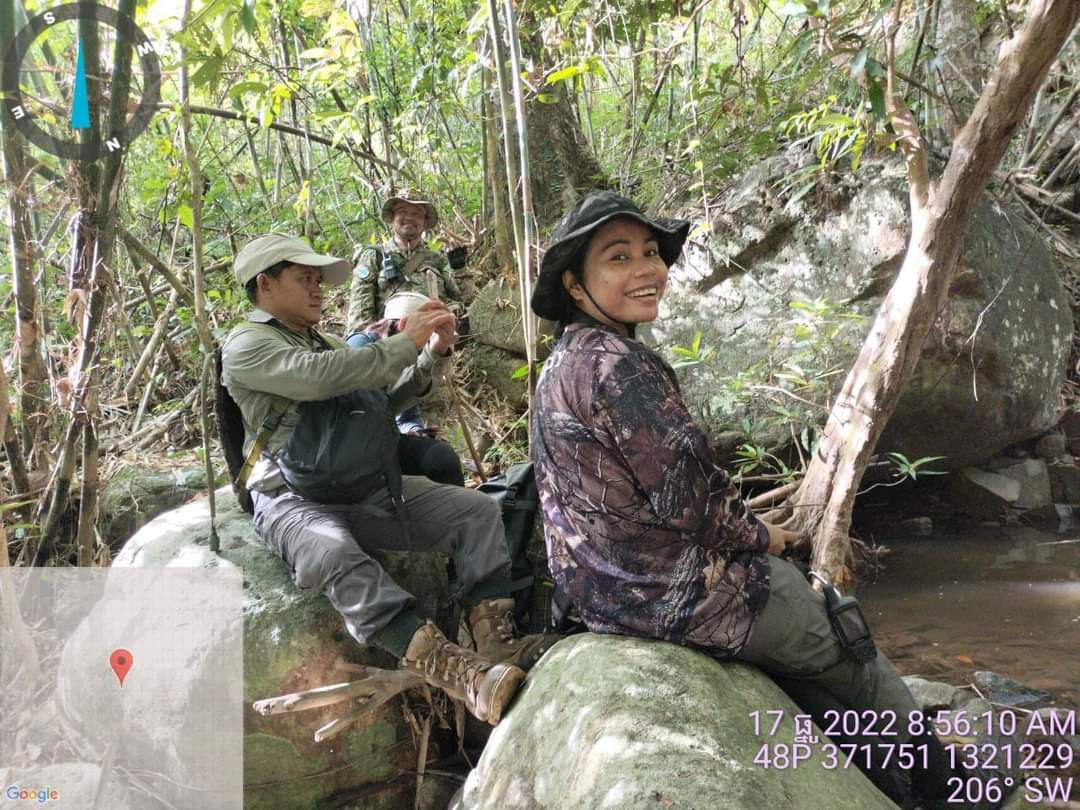
Hoping to become a food chemist and then settling for forest conservationist
Ret's initial career dream had been food chemist. However, her family made her choose a different major at university as living and studying in Phnom Penh was financially too burdensome for a low-income family like Ret's.
"I first wanted to major in food chemistry at the Cambodian Institute of Technology,” she said. “I did pass the entrance test, but my mother asked me not to continue because my family could not afford the school fees.
"In the meantime, I got a scholarship to study biology, so my mother encouraged me to take the course," she said. Ret obtained a master's degree scholarship in biodiversity conservation as she was undertaking another master's degree in Australia from 2019 to 2021.
Although Ret did not get the chance to take the major she dreamed of, she still did well academically and professionally, and has embarked on the fantastic journey of working as a forest conservationist in an environment that she loves.







